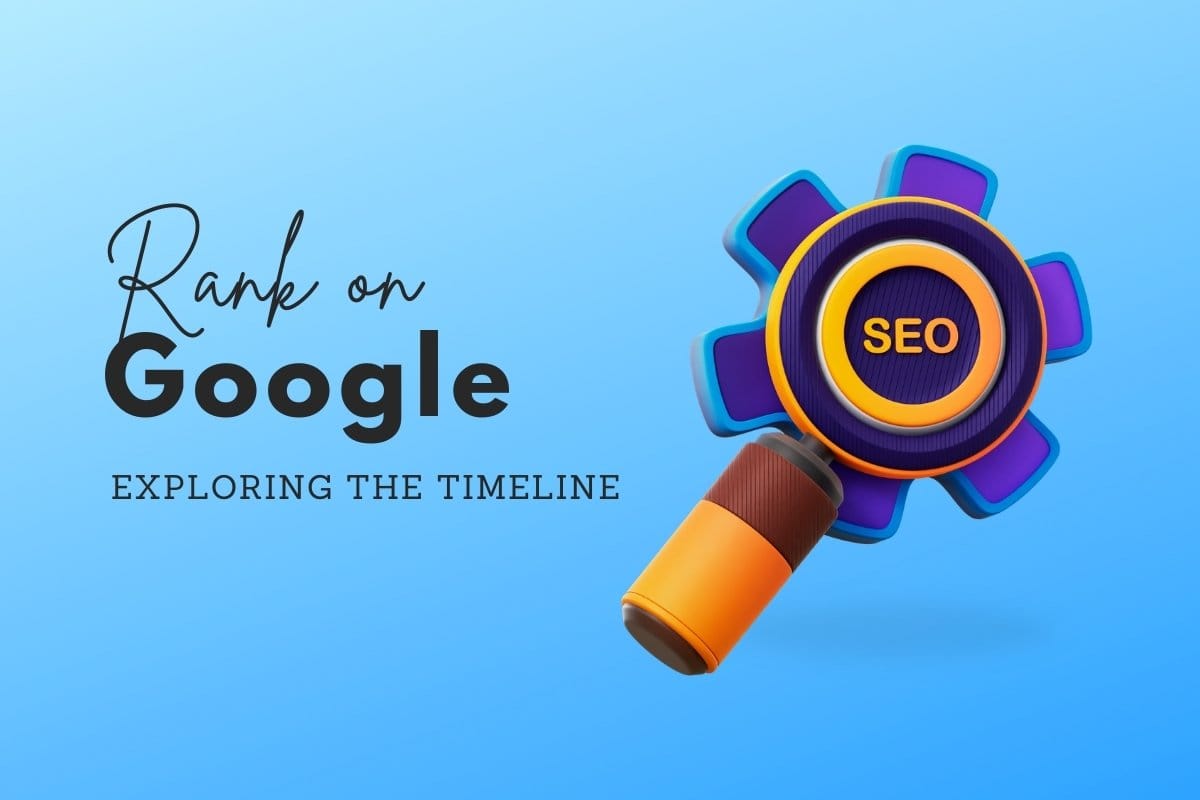
How Long Does it Take to Rank on Google? Exploring the Timeline
In the world of digital marketing, everyone wants their website to rank on the first page of Google. After all, it’s where the majority of online traffic comes from. But how long does it actually take to reach the coveted first page? This is a question often asked by website owners, marketers, and SEO specialists alike. While there’s no one-size-fits-all answer, various factors come into play that can influence how quickly—or slowly—you can rank.
In this blog post, we’ll explore the timeline for ranking on Google, the factors that affect it, and actionable steps to help improve your chances of making it to the top faster. Let’s dive in!
What Influences Your Ranking Timeline?
1. Age of Your Domain
Google tends to favor established websites over new ones. Older domains generally have a stronger backlink profile, more content, and greater trustworthiness. If your site is brand new, it might take longer to earn Google’s trust, potentially 6 months to a year before you see significant ranking improvements.
However, don’t be discouraged. New websites can still rank quickly with the right strategy. But understand that the domain’s age can either speed up or delay your progress.
2. Competition in Your Niche
Some industries are more competitive than others. Ranking for a high-volume, competitive keyword like “best credit cards” will take much longer than a niche term like “organic dog treats in Miami.”
Low-competition keywords often allow you to rank faster, sometimes within weeks, while high-competition terms could take several months or even years. It’s crucial to analyze your niche and target keywords accordingly.
3. Quality of Content
Google’s algorithm is designed to rank the best content. Content that provides value, is well-researched, and solves user problems is much more likely to rank higher and faster. If your website has thin, keyword-stuffed, or duplicate content, your rankings will suffer, regardless of your SEO efforts.
4. On-Page SEO Optimization
On-page SEO refers to optimizing individual web pages to improve their rank. This includes using relevant keywords, proper meta descriptions, title tags, header tags (H1, H2), and optimizing for mobile responsiveness and site speed. Well-optimized pages can start ranking faster, within weeks or a few months, especially for long-tail keywords.
5. Backlinks
Backlinks act as a vote of confidence from one website to another. The more high-quality backlinks you have, the more Google will trust your site. Building an organic backlink profile can take time, but it’s crucial for reaching the first page of Google. Some pages can reach the first page with just a few powerful backlinks, while others might need hundreds, depending on the competition.
6. Technical SEO
Search engines need to crawl and index your site efficiently. Ensuring that your technical SEO is top-notch—by optimizing your sitemap, robot.txt, and improving crawlability—will help your website rank faster. Websites with unresolved technical issues can remain stuck in lower rankings, regardless of content or backlinks.
7. User Experience (UX)
Google increasingly values user experience, which includes factors like mobile-friendliness, page load speed, and how easy your site is to navigate. If your website offers an excellent UX, you’re more likely to rank faster. Google measures user behavior metrics like dwell time and bounce rates to gauge the quality of your site.
How Long Will It Take? A General Timeline
- New Websites (0-6 months): If you’re starting with a brand-new website, expect a time frame of 6 to 12 months before you can realistically reach the first page for your target keywords. Low-competition keywords can rank sooner, but high-competition terms will take longer.
- Established Websites (6-12 months): If your domain is a year or older and you’ve been implementing SEO strategies, you might see first-page results for competitive keywords within 6 months. If your site is highly optimized with strong content and a backlink profile, it could happen even faster.
- Highly Competitive Keywords (1 year+): For extremely competitive terms, it may take 1-2 years of consistent effort to reach the first page. In such cases, it’s essential to focus on long-tail keywords or niche-specific phrases to get initial rankings and build authority.
Strategies to Speed Up Your Ranking Time
While patience is necessary, there are several strategies that can help expedite your journey to the first page:
1. Focus on Long-Tail Keywords
Long-tail keywords are less competitive and more specific. While they may have lower search volumes, they often convert better and are easier to rank for. By targeting long-tail keywords, you can build traffic more quickly and, over time, rank for more competitive terms.
2. Optimize for User Intent
Google prioritizes content that matches user intent. Ensure your content answers the specific questions your audience is asking. Use tools like Google’s “People also ask” section to identify these queries and create content that fulfills them.
3. Build High-Quality Backlinks
A strong backlink profile can dramatically reduce your ranking time. Reach out to industry-specific blogs, authoritative websites, and niche influencers for backlink opportunities. Guest posting, infographics, and creating shareable content can also help attract backlinks.
4. Improve Site Speed
Google has emphasized that page speed is a ranking factor. Use tools like Google PageSpeed Insights to check your site’s performance and optimize it. Compress images, leverage browser caching, and use content delivery networks (CDNs) to ensure your pages load quickly.
5. Ensure Mobile Optimization
With Google’s mobile-first indexing, your website needs to perform well on mobile devices. Ensure that your site is fully responsive and provides a seamless mobile experience.
6. Use Internal Linking
Don’t underestimate the power of internal links. They help Google understand the structure of your website and can improve rankings for specific pages. Link relevant articles together and use appropriate anchor text to boost your SEO efforts.
Common Mistakes That Can Delay Rankings
Avoid these pitfalls if you want to rank faster:
- Neglecting Technical SEO: Ignoring technical SEO aspects like broken links, duplicate content, or slow page speed can keep you from ranking no matter how great your content is.
- Keyword Stuffing: Overusing keywords in your content will hurt your rankings. Google values natural, helpful content, not keyword-stuffed articles.
- Lack of Fresh Content: If your website isn’t consistently publishing new, valuable content, it could signal to Google that your site is outdated.
- Ignoring Analytics: Use tools like Google Analytics and Google Search Console to monitor your website’s performance. Regularly analyzing data helps you refine your SEO strategies and improve rankings faster.
Final Thoughts
Reaching the first page of Google takes time, effort, and strategy. For new websites, it can take anywhere from 6 months to a year, while established sites might achieve first-page rankings in less time. However, focusing on long-tail keywords, producing high-quality content, and optimizing both on-page and technical SEO will help speed up the process.
Remember, SEO is a long-term investment. The more consistently you optimize and improve your site, the quicker you’ll reach the first page—and, most importantly, stay there.
So, be patient, stay persistent, and keep refining your SEO strategy to boost your chances of success!
Need help improving your Google rankings? Contact us today, our SEO experts are ready to help you reach the first page!
Search engine optimization (SEO) on Wikipedia.


 October 3, 2024
October 3, 2024